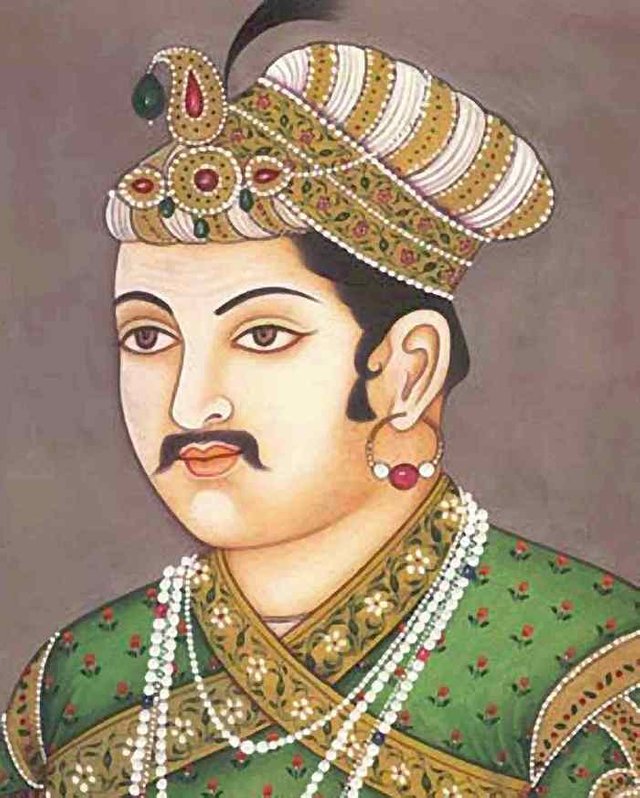
Akbar was the emperor of India between 1556 and 1605. He is generally regarded as the greatest ruler of the Moghul Empire. From 1556 up to 1560 he was only a nominal ruler and the empire was controlled by an officer named Bairam Khan. In 1574 when he was eighteen years old, Akbar sacked Bairam Khan and took control of the empire.
His empire extended as far as Ahmedabad, Gujarat. He built a new capital at Fatehpur Sikri and endeavoured to unify his empire by conciliation with Hindus. He also tolerated other religions.
Akbar’s parents were the Moghul king Humayun and his queen Hamida Banu Begum. He was born in Amarkot where his parents lived in exile, driven away from Delhi by an opponent named Sher Shah.
Humayun was able to regain the throne of Delhi in 1555 but died of a sudden illness one year later. At that time Akbar who was about 13, was living in Punjab. He was immediately brought to Delhi and proclaimed the king of Delhi.
Akbar gradually subdued all his opponents and in 1556 his army defeated the Afghan - Hindu joint forces led by Hemu the Afghan general who had taken the Hindu name ‘Vickramaditya’, at the famous battle ground Panipath near Delhi.
In 1564 he brought the Madhya Pradesh under his control. Next he annexed Punjab, Multan, Gwalior, Rajputana, a large portion of Afghanistan, Malwa, Chitor, Ranthambhor and Gujarat. By the year 1575 the whole of North India was under his rule.
In 1586 Akbar’s armies captured Kashmir. Next Sind, Baluchistan and Kandahar in the western part of India and Orissa in the eastern part were annexed.
In 1601 Akbar’s armies headed for South India, and they were able to capture Khandesh, Birar and Ahmadhagar in Deccan.
By the time of his death that occurred in1605 he was the sole emperor for the Northern and Central India, Afghanistan and Baluchistan.
Akbar’s great quality of tolerating the other religions is well known. He had a special assembly hall named ‘Ibadat Bana’ reserved for religious conferences at Faht Pur Sikri.
Akbar himself organized a special religion named ‘Din I Ilahi’ combining the essence of many religious of the day.
He abolished all taxes the Hindu were subjected to and appointed Hindu officers such as Man Singh, Raja Thodarmal and Raja Weerabal, to high administrative and military positions.
One of his favourite queens was a Hindu princess named Jodha from Rajput. She bore prince Saleem.
Though Akbar had no formal education, he loved music, arts, literature, and religious and literary discussions. He was the owner of a library with a large collection of books written on various subjects.
Akbar’s very close associate and friend was a poet named Abul Faizy. The famous musician Than Sen was his court musician.
@originalworks @minnowpond @minnowsupport @benjo @farihelper @morwhale @dorabot @SteemGigs @dropahead